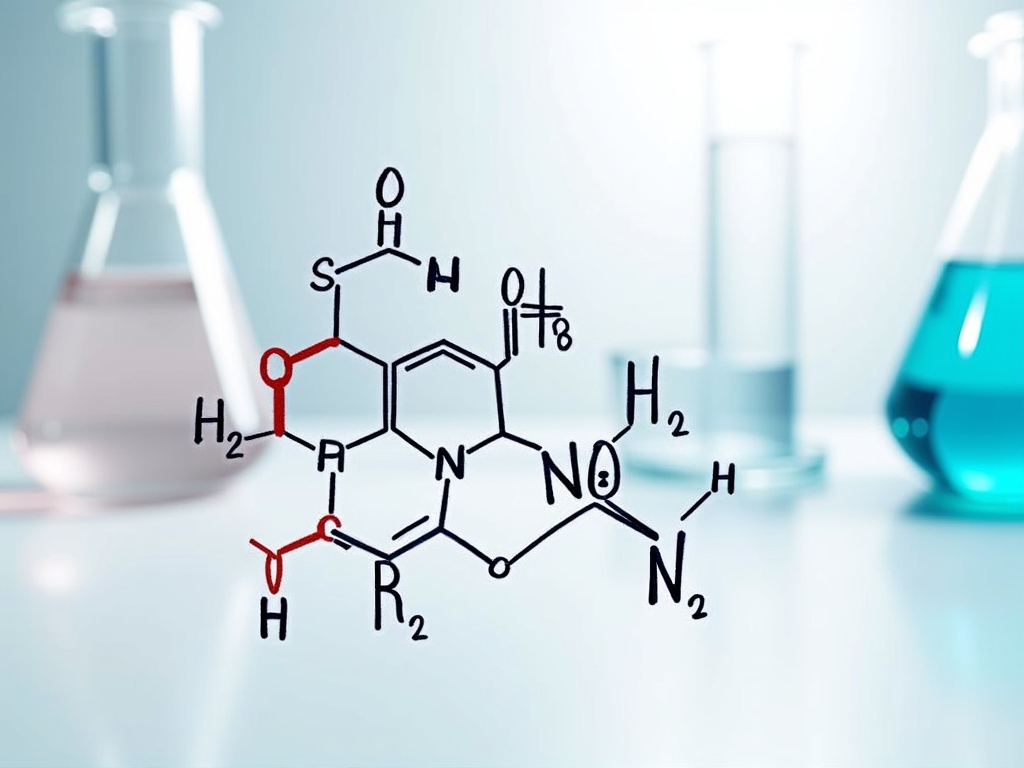The Hidden Culprit: How Chemicals in Food Increase Blood Sugar Have you ever wondered why, despite eating what you think is “healthy food,” your energy levels fluctuate, and you still struggle with high blood sugar?
It’s not just the sugar in your dessert or that extra slice of pizza—it’s the hidden ingredients. The chemicals in our food silently affect our bodies, and understanding this process is crucial to reclaiming control over our health.
I decided to do this research after realizing that natural homemade bread didn’t spike my blood sugar as store-purchased bread did—what caused the spike? Well, chemicals in food!!!!

The Unseen Impact of Chemicals in Food
Imagine biting into a vibrant, fresh salad, only to find that hidden chemicals are beginning a cascade inside your body that could eventually spike your blood sugar. It sounds like something out of a science fiction novel, but it’s a very real situation we face today.
From preservatives and artificial sweeteners to flavor enhancers and color additives, these chemicals are an integral part of industrial food production. The surprising truth is that they contribute to the very things you’re trying to avoid, including elevated blood sugar levels.
The food industry’s reliance on these additives has dramatically transformed what and how we eat. In a world where convenience often trumps health, manufacturers add chemicals in an attempt to preserve food freshness, enhance flavors, and create eye-catching products.
However, these shortcuts come with a cost. Our bodies are built for whole, unprocessed foods, and when we introduce artificial compounds into our systems, they can disturb our delicate hormonal balance, especially regarding insulin and blood sugar regulation.
A big warning: I am not blaming the food industry, which needs to produce large quantities of tasteful food with a long shelf life. Thus… it’s our fault.
How Chemicals in Food Disrupt Your Body’s Natural Balance
1. The Science Behind the Spikes
Chemicals in our food can lead to an array of metabolic disruptions. One significant effect is on insulin, the hormone responsible for regulating blood sugar. Here’s a closer look at the process:
- Insulin Resistance: Some food additives can provoke chronic low-level inflammation. This condition may lead the body to become less sensitive to insulin, a phenomenon known as insulin resistance. When your body can’t use insulin efficiently, glucose accumulates in the bloodstream, resulting in consistently high blood sugar levels.
- Interference with Gut Health: Many chemicals affect the delicate balance of your gut microbiome. A disrupted gut flora can influence everything from nutrient absorption to immune function. Certain additives may reduce beneficial bacteria while encouraging harmful ones, further escalating inflammation and metabolic issues.
- Artificial Sweeteners and Their Side Effects: While marketed as healthy alternatives to sugar, artificial sweeteners can send conflicting signals to your body. These chemicals often confuse the brain, leading to an increased craving for sugary foods, paradoxically raising your blood sugar in the long run.
2. Everyday Culprits in Your Diet
Let’s detail some common chemicals that might be sabotaging your health:
- Preservatives: Chemicals like sodium benzoate and nitrates are frequently found in processed meats and snacks. These compounds help extend shelf life but can trigger inflammatory responses.
- Color Additives: Synthetic dyes, often derived from petroleum sources, have been linked to hormonal disruptions. Certain dyes can mimic or interfere with natural hormones, affecting insulin function.
- Flavor Enhancers: Notably, monosodium glutamate (MSG) is ubiquitous in many processed foods. While MSG is safe for most people in moderate amounts, some individuals might find it exacerbates metabolic issues and blood sugar spikes.
- Emulsifiers: Added to many processed foods to enhance texture and stability, emulsifiers have been shown in some studies to disturb the gut microbiome, indirectly fostering conditions like insulin resistance.
3. The Domino Effect on Metabolism
When you consume food laden with these chemicals, it’s not an isolated impact. Instead, your body responds in a cascade of events:
- Initial Exposure: As you ingest these harmful additives, your digestive system begins processing them alongside natural nutrients.
- Inflammatory Reaction: The introduction of foreign compounds can prompt low-level inflammation. Over time, even subtle inflammation can throw off your body’s equilibrium.
- Alteration of Hormonal Signaling: The increased inflammation, combined with disrupted gut health, creates an environment where your insulin receptors become less effective. This inefficiency sets the stage for elevated blood sugar levels.
- Chronic Health Risks: Prolonged exposure to these disturbances may lead to more serious conditions, such as prediabetes or type 2 diabetes, painting a stark picture of how these everyday chemicals can contribute to long-term health problems.
This isn’t just academic; it’s a pressing issue affecting millions. Our modern lifestyles force us to navigate a maze of synthetic additives, each playing a part in the symphony of metabolic disruption.

Visualizing Life Beyond Chemicals in Food Overload
Imagine waking up each day with steady energy levels, free from the rollercoaster of sugar highs and lows. Picture a life where your food choices genuinely contribute to your long-term health and vitality—not the other way around. Understanding the impact of chemicals on blood sugar is the first step toward crafting a healthier, more balanced lifestyle.
1. A Life Centered Around Whole Foods
Envision a world where your meals are more than just fuel—they celebrate nature’s abundance. By opting for whole, unprocessed foods, you’re avoiding harmful chemicals and embracing a diet that nurtures your body on every level. Fresh fruits, vegetables, and whole grains provide the nutrients your body needs to function optimally without the disruptive influence of artificial additives.
- Clearer Thinking and Steady Energy: Foods free from harmful chemicals help stabilize blood sugar levels, leading to improved concentration, more consistent energy, and a better overall mood.
- Enhanced Digestion: A diet rich in natural ingredients promotes a healthy gut microbiome, which is essential for effective digestion and nutrient absorption.
- Long-Term Resilience: By prioritizing foods that bolster your health, you set the stage for a resilient body that’s better equipped to manage stress and ward off chronic diseases.
2. Empowerment Through Knowledge
When you understand how chemicals in food affect your body, you gain the power to change your destiny. Knowledge is a transformative tool—it allows you to make informed decisions about your diet, health, and lifestyle. Empowering yourself with this understanding means you can look beyond the supermarket shelf labels and critically evaluate the true cost of convenience foods.
- Read Labels with a Critical Eye: Recognizing potentially harmful additives enables you to choose products that prioritize your well-being.
- Cook at Home More Often: Preparing meals at home gives you complete control over what goes into your food, ensuring you only consume ingredients that nurture and sustain you.
- Seek Guidance: Consult nutritionists, health coaches, or reliable literature to further your understanding, turning knowledge into lasting lifestyle changes.
3. Your Health, Your Investment
Taking control of your diet isn’t just a short-term fix—it’s an investment in your future. By minimizing your exposure to chemical additives, you create a foundation for longevity and improved quality of life. In the long run, every meal becomes an opportunity to protect your health, boost your metabolism, and ward off diseases linked to high blood sugar and inflammation.
- Visualize a Healthier Future: Think about the moments you want to enjoy with loved ones, the goals you wish to achieve, and the energy needed to pursue them. A better, chemically clean diet can help unlock that future.
- Transform Your Daily Routine: Small changes, such as shopping at local markets or cooking simple recipes using fresh ingredients, can lead to big improvements over time.
- Join a Community: Surround yourself with individuals who share your commitment to healthy eating. Community support can be a powerful motivator on the journey towards a chemical-free diet.
Taking the First Step Toward a Healthier You
Now that you’ve uncovered the hidden dangers of chemicals in food and the impact they have on blood sugar, it’s time to act. Start by taking a few practical steps to minimize your exposure and reclaim your health:
- Educate Yourself and Read Labels: Become an active consumer. Familiarize yourself with common chemical additives and their potential effects. Look for products that have natural ingredients and avoid those with a long list of synthetic additives.
- Choose Fresh, Whole Foods: Fill your grocery cart with fruits, vegetables, lean proteins, and whole grains. Whenever possible, shop at local farmers’ markets or stores that emphasize organic or minimally processed products.
- Plan and Prep Meals: Dedicate weekly time to plan meals emphasizing balanced nutrition. Preparing meals at home reduces your reliance on convenience foods and allows you to experiment with flavors and recipes that support steady blood sugar levels.
- Experiment with Natural Alternatives: If you’re accustomed to flavored foods and snacks, try natural seasonings and herbs to enhance your meals. Replacing artificial additives with natural ones can reduce chemical overload and delight your taste buds.
- Seek Professional Guidance: Consider consulting with a nutritionist or healthcare provider to tailor a diet that works best for your body. Personalized advice can help you navigate dietary changes effectively and sustainably.
As you embark on this journey toward a healthier lifestyle, remember that change doesn’t have to happen overnight. Incremental improvements can lead to significant long-term benefits, not just in your blood sugar control but also in overall well-being.
Why It Matters on a Larger Scale
The influence of chemicals in food isn’t a problem confined to individual health—it’s a societal issue. The widespread use of these chemicals affects public health, contributes to the increasing prevalence of chronic diseases, and places a growing burden on healthcare systems worldwide.
1. Environmental and Economic Costs
The production and disposal of chemicals in food also have environmental implications. The synthetic nature of these compounds often results in byproducts that can harm ecosystems and contaminate water sources. Moreover, the economic costs associated with treating chronic diseases related to high blood sugar and metabolic disorders are staggering.
- Sustainable Eating: By reducing reliance on processed foods, you not only benefit your own health but also contribute to a more sustainable model of food production that prioritizes natural, eco-friendly methods.
- Long-Term Savings: Investing in your health through better dietary choices can reduce personal healthcare costs in the long run. Preventative measures today help offset potential medical expenses tomorrow.
2. The Call for Regulatory Change
As awareness grows about the adverse effects of chemicals in food, many experts advocate for stricter regulations on food additives. This push for change is driven by the need to protect consumers and ensure that the food industry prioritizes health over convenience.
- Advocacy Matters: Raising awareness about the harmful impact of these additives can drive consumers to demand higher quality, naturally sourced ingredients.
- Community Involvement: Join or support initiatives that push for transparency and reform in food production. Every small step counts when it comes to creating a healthier food system for everyone.
3. The Role of Innovation in Healthier Food Production
Food scientists and manufacturers are increasingly taking note of consumer demand for natural, non-toxic ingredients. Innovative approaches in food production are emerging, focusing on preservation methods that do not rely on synthetic chemicals. Embracing these advancements can lead to a future where maintaining balanced blood sugar levels is a natural outcome of the food you eat.
- New Technologies: Techniques like high-pressure processing (HPP) and natural fermentation are gaining traction as effective methods to preserve food without harmful additives.
- A Healthier Future: As these technologies become mainstream, we can expect a gradual decrease in the prevalence of processed food-related health issues, including those associated with high blood sugar levels.
Your Journey Toward Better Health
In summary, the chemicals in food supply are not merely abstract scientific entities—they play a tangible role in disrupting our metabolic balance and increasing blood sugar levels. From invisible inflammatory triggers to direct interference with hormone signaling, these additives have a profound impact on our bodies. But armed with this knowledge, you now have the power to reclaim your health.
Imagine fewer mood swings, more consistent energy, and a vibrant life free from the burden of blood sugar crashes. With every choice you make about what to eat, you’re taking a stand against a system that prioritizes profit over people’s health. Your journey to a healthier life begins with understanding the hidden dangers of food chemicals and making deliberate, informed choices.
Take the leap today by re-evaluating your grocery list, experimenting with whole foods, and advocating for healthier options in your community. Every small change contributes to a larger movement—one that prioritizes health, sustainability, and the long-term well-being of our society.
Key Takeaways
- Chemicals in food are more than just additives—they have a direct, adverse impact on insulin function and blood sugar regulation.
- Scientific insights reveal that these synthetic compounds cause inflammation, disrupt gut health, and ultimately foster insulin resistance.
- Imagine a vibrant, energetic life based on a diet of whole, natural foods, a path that not only stabilizes your blood sugar but also enhances your overall quality of life.
- Begin today by educating yourself about food labels, prioritizing fresh ingredients, planning nutritious meals, and seeking professional advice to tailor your diet to your needs.
Embrace the challenge of transforming your eating habits and join the growing community committed to combating the hidden culprits in our food. Your health is the most valuable asset, and every informed choice is a step toward a brighter, healthier future.
Dive into your next grocery run with a renewed sense of purpose and a mission to nourish your body the way nature intended.
Transitioning from a chemical-laden diet to one that celebrates whole, natural foods isn’t just a trend—it’s a revolution in self-care. While the road to better health may seem daunting at first, the rewards are immense.
Imagine the freedom of a body that functions optimally, the delight in every bite of fresh produce, and the confidence of knowing you’re making a positive impact on your health and environment.
It’s time to break free from the cycle of processed foods and synthetic additives. Your body deserves better, and so do you. Let your journey toward a more natural, balanced lifestyle begin today.
Remember, every small change adds up to a significant, lasting impact. Choose wisely, act now, and step into a healthier tomorrow!

Summary of Key Points
- Chemicals in processed foods directly interfere with insulin function and blood sugar regulation.
- The transformation from chemical additives to whole, natural foods can dramatically improve energy, mood, and long-term health.
- Taking practical steps like reading labels, cooking at home, and engaging with your community can empower you to overcome the metabolic disruptions caused by these chemicals in food.
Your health journey is in your hands—begin today and experience the incredible benefits of a diet free from harmful chemicals. Embrace the change, and discover the vibrant life that awaits you!

Leave a Reply